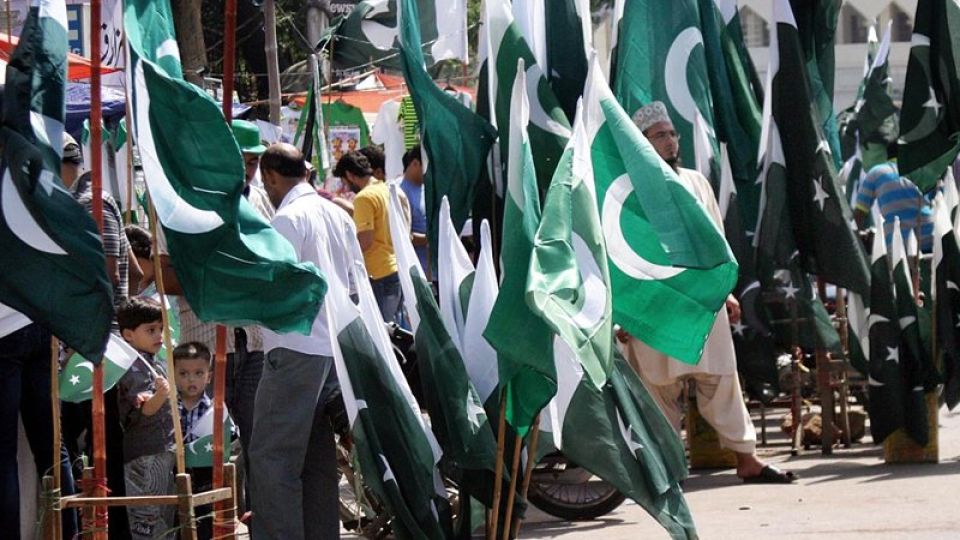June 9, 2023
ISLAMABAD – IN medical terminology, autoimmunity is “a condition in which the body’s immune system mistakes its own healthy tissues as foreign and attacks them”. In other words, it is an attack on the self by the self.
About four per cent of the world’s population is affected by autoimmune diseases. Like humans, nation states are also vulnerable to autoimmune attacks. The events of 9/11 are cited as a case of autoimmunity at work in the US, whereby the latter’s sovereignty was violated by a threat created by US foreign policy. Al Qaeda chief Osama Bin Laden owned the attacks. The US had funded and trained OBL during the Cold War to protect US sovereignty by undermining the ‘evil empire’, ie, the Soviet Union. Thus, 9/11 was an autoimmune attack by the US on the US. The attack was launched from within its borders, using American planes as war machines and American citizens as the target.
Pakistan is another case. It was born without some parts — not exactly what the parents had wanted. Soon it developed an autoimmune deficiency which remained undiagnosed and even caused the amputation of one of its body parts in 1971, when East Pakistan seceded.
It took many specialists many years to diagnose and treat the disease — specialists on democracy, the parliamentary system, national security, law and human rights. The nature of the disease required coordination between specialists from different fields. The treatment kept changing from martial law to civilian supremacy and some constitutional amendments to keep the patient going.
Why does Pakistan keep attacking itself?
Not long after losing one of its limbs, the patient was prescribed the pills of ‘strategic depth’. The result was another autoimmune attack. State-funded and supported Taliban turned their guns on Pakistan itself. Meanwhile, amidst separatist tendencies, suicide attacks and ‘foreign intervention’, the patient’s condition worsened.
For the past few years, the patient has been seriously unwell. On the social front, the sectarian, linguistic and ethnic divide has further fuelled the victim narrative and the politics of hate. With declining exports, soaring inflation, a depreciating rupee, and depleting foreign reserves, there is no remedy in sight.
In the most recent episode of attacks on the system, a mob set fire to the Jinnah House in Lahore, Radio Pakistan in Peshawar, the Mianwali air base, and several military installations, along with a memorial to martyrs, besides committing several offences of arson and assault. As the body reeled from the attack, it became evident that once again our very own citizens mistook our own institutions — our parliament, our military — our own history and landmarks as a threat, and ignored the possibility of how this tumult within made the system vulnerable to external viruses; the real, more potent threat.
Judicial and military experts as saviours claim to have diagnosed the problem. They are confident the remedy lies with them as experts. But what are the risk factors and the root causes of the disease? Experts from the judiciary and the security establishment are blaming parliament, the representative of the citizen body, for corrupting and damaging the system. Elections are the prescribed remedy. But they are not the panacea for terminal illnesses. There are whispers of the possibility of an emergency. Emergency in any form, whether constitutional, economic, or judicial, will lead to a ‘state of exception’ and unending crises, thus rendering human beings and their rights expendable.
Patients with autoimmune disorders are advised to treat the symptoms to manage their disease. In this case, the best possible line of treatment includes, foremost, setting priorities. What comes first? Do we need stability or destructive change with the use of naked and unobstructed power? Long-term solutions may be slow but will bring positive results, and these include the rule of law and restructuring the economic and education systems. Our national curriculum needs to be revised to induce civic values and critical consciousness to deal with the damage caused by the pills of nationalism coated with religious extremism.
Political discourse embedded in religious symbolism, particularly analogising political struggle with jihad, has, from the 1980s till today, polarised society, enabling political and non-political leadership alike to harness the potential energy of the citizen body and divert it to attacking the system itself, rather than concentrate on progressive development. Institutions must respect their own and other institutions’ boundaries. Last but not least, this tipping point demands an active and sincere effort on the part of all stakeholders and experts.
The writer holds a PhD degree in international relations and is an independent researcher.


